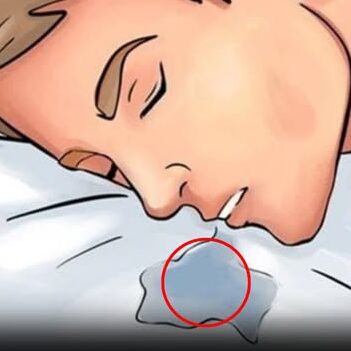
Drooling while sleeping is quite common and usually harmless, though it can be awkward or uncomfortable in social or unfamiliar situations. Often, it’s simply linked to how you sleep or other mild factors. However, if you suddenly start drooling more than usual, it could sometimes point to an underlying health issue that needs medical attention. Knowing the potential causes and treatments can help you manage or lessen it effectively.

One of the leading triggers is your sleeping position — lying on your side or stomach increases the chance of drooling, especially when nasal congestion is present. Certain medications, such as sedatives, anti-inflammatories, or psychiatric drugs, can also stimulate extra saliva. Breathing issues caused by allergies or a deviated septum may block nasal airflow, leading to mouth breathing and drool buildup. Sleep apnea is another frequent cause, linked to disrupted breathing and increased saliva.
Other health-related factors include dental issues such as infections or cavities, which make swallowing uncomfortable and lead to excess saliva. Acid reflux (GERD) can also trigger nighttime drooling. Neurological disorders like Parkinson’s, ALS, or stroke can weaken muscle control, making it difficult to manage saliva flow. Teeth grinding (bruxism), particularly if you wear a mouthguard, may also interfere with mouth closure and contribute to drooling.
To help minimize drooling, try sleeping on your back so saliva stays in your mouth. Staying hydrated and using simple home remedies — for instance, sucking on lemon slices — may also help. Oral appliances, such as mandibular devices or customized mouthguards, can support better mouth closure. If sleep apnea is involved, using a CPAP machine can greatly reduce saliva buildup.
For ongoing or severe cases, medical options might be needed. Botox injections can temporarily lower saliva production, while surgery to remove certain salivary glands is reserved for serious neurological cases. If drooling starts suddenly, increases noticeably, or occurs with jaw discomfort, facial weakness, or swallowing difficulties, consult a doctor to rule out major health problems and determine proper treatment.


